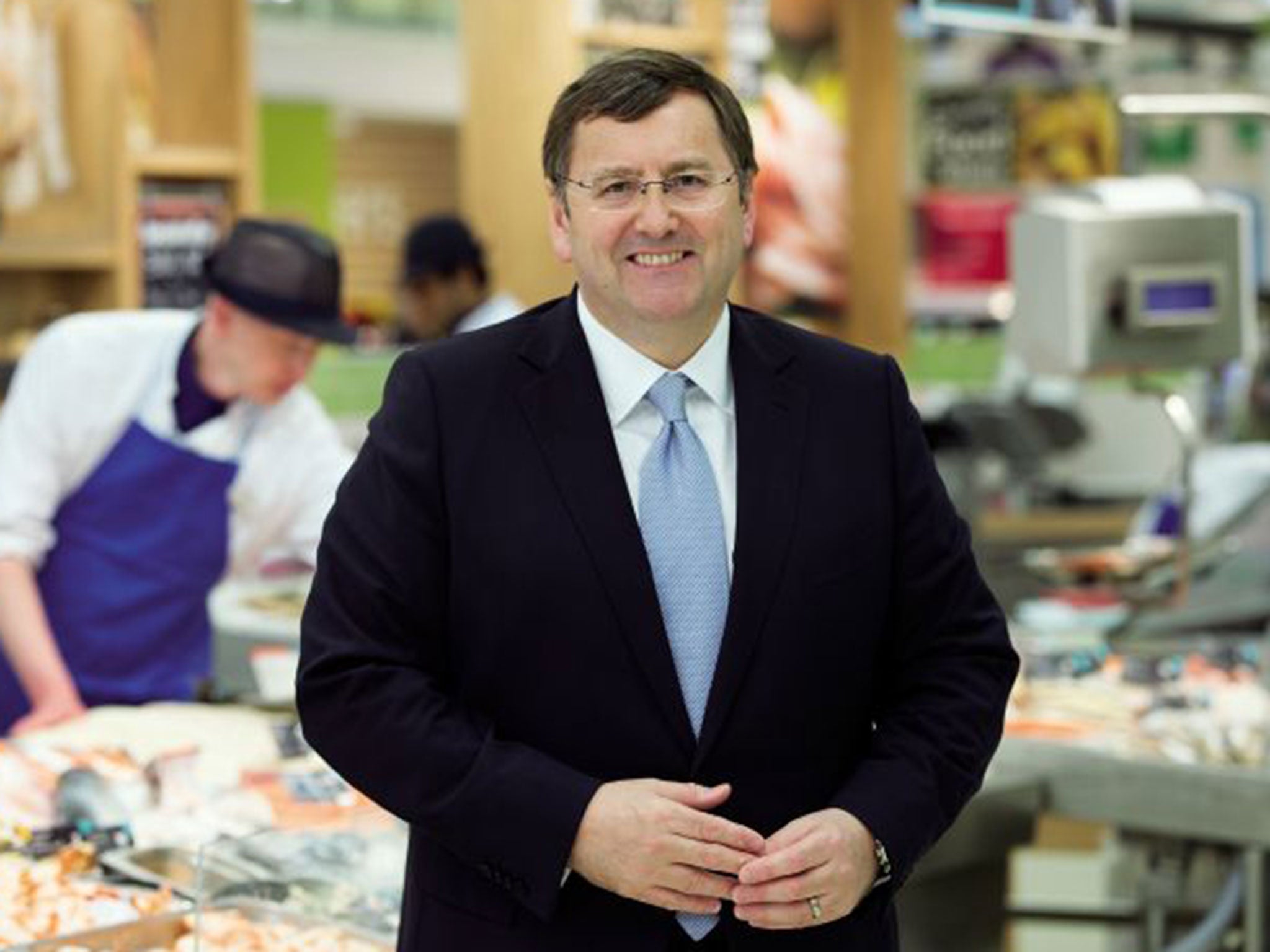Tesco in crisis: ‘Phil Clarke’s legacy skulks around corridors like a bad smell’

Your support helps us to tell the story
From reproductive rights to climate change to Big Tech, The Independent is on the ground when the story is developing. Whether it's investigating the financials of Elon Musk's pro-Trump PAC or producing our latest documentary, 'The A Word', which shines a light on the American women fighting for reproductive rights, we know how important it is to parse out the facts from the messaging.
At such a critical moment in US history, we need reporters on the ground. Your donation allows us to keep sending journalists to speak to both sides of the story.
The Independent is trusted by Americans across the entire political spectrum. And unlike many other quality news outlets, we choose not to lock Americans out of our reporting and analysis with paywalls. We believe quality journalism should be available to everyone, paid for by those who can afford it.
Your support makes all the difference.Tesco’s woes cannot be overstated. Shares have fallen to an 11-year nadir, its customer base is at a 10-year low, and shoppers are deserting its stores. Meanwhile, the ship is being steered by a board without a single proven retailer – and now the interim trading profit will be 50 per cent lower than last year.
But when the dust settles and the City comes to terms with the scale of yesterday’s £250m “overstatement”, the blame game will begin.
The first people under scrutiny will inevitably be the four executives suspended from work – UK managing director Chris Bush, UK finance director Carl Rogberg, food commercial director John Scouler and head of food sourcing Matt Simister.
But to understand how Tesco came to find itself in disarray you must go back three years to the appointment of Phil Clarke as chief executive.
Cut Mr Clarke open and he bleeds Tesco. A former shelf stacker, he learned from his store-manager father and built his way to the top of the chain. But when he took over from Sir Terry Leahy it quickly became apparent that his predecessor had over-expanded abroad, to the detriment of the UK business. Meanwhile, UK customers’ fondness for out-of-town shopping had evaporated.
However, Mr Clarke was not blameless and the hospital pass he received quickly turned from outpatient to critical care.
People who worked for him called the Liverpudlian a hard taskmaster; openly shouting at executives in front of staff and surrounding himself with a cabal of supporters. Suspended Mr Bush was seen as his protégé.
Many of the executives who helped Sir Terry build his legacy soon became frustrated with Mr Clarke and left. Earlier this year it became apparent that Mr Clarke was not up to the job.
He had no reply to the rise and rise of discounters Aldi and Lidl, spent billions refreshing stores that continued to shed customers and launched a price war that failed to grab shoppers’ attentions.
Shares plummeted 40 per cent in the past 12 months – wiping £6bn from the company’s value – and a profit warning in July sounded his death knell.
Investors would have hoped Mr Clarke’s departure would be the end of the problems. Little did they know less than three months later a further two profit warnings would be issued and the next set of results pushed back by three weeks – something generally unheard of in the FTSE 100.
There is no suggestion that Mr Clarke played any part in yesterday’s profit warning but clearly he has questions to answer about what he knew and how he let standards slip under his watch.
Ruling with an iron fist, some have suggested he put fear into colleagues to produce results, which could have contributed to some of the behaviour exposed yesterday.
With executives keen to wash their hands of Mr Clarke, while trying to impress new boy Dave Lewis, it is no surprise a whistleblower came forward quite so readily.
Bonus clawbacks are being openly discussed and an investigation could uncover even more problems. A similar overstatement by insurers RSA earlier this year led to the Serious Fraud Office getting involved.
His finance director Laurie McIlwee, who did not see eye-to-eye with Mr Clarke, left in April, leaving a question mark over the board’s ability to audit the figures.
And while Mr Clarke has gone, his legacy skulks around the corridors like a bad smell.
He is not the only one facing scrutiny – the chairman’s position is increasingly untenable – but with so many unanswered questions, shareholders must be hoping the former boss’s love of Tesco will help them understand what went so disastrously wrong.
Join our commenting forum
Join thought-provoking conversations, follow other Independent readers and see their replies
Comments